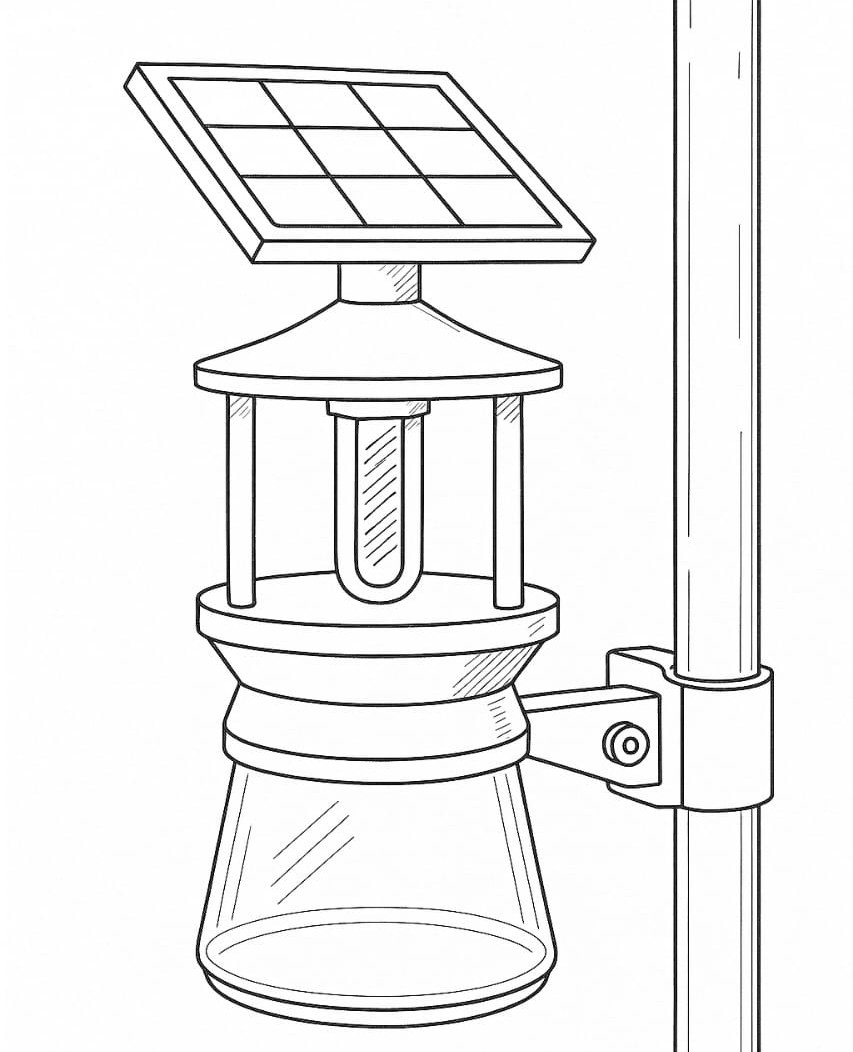Project Name
Mini AgriSun Trap
Project Idea / Introduction
An environmentally friendly and solar-powered device, the solar insect trap is designed to attract and capture flying insects using light. This innovative solution specifically targets harmful agricultural pests such as thrips, mites, whiteflies, and red spiders, which are known to cause significant damage to crops. By reducing the dependence on chemical pesticides, these traps offer a sustainable and eco-conscious alternative for pest control, helping to preserve soil health and protect biodiversity.
Problem Statement
I decided to take up this project after observing a significant issue at the polyhouse located in Vigyan Ashram. This polyhouse is used for cultivating a variety of fruits and vegetables. However, it was frequently infested by snakes and harmful insects, which caused severe damage to the crops. The presence of these pests not only reduced the yield but also affected the quality of the produce. To address this challenge, I was advised to find an effective and sustainable solution for pest control that could help protect the crops and maintain a hygienic environment for vegetable production. The major insect pests that commonly attacked the crops included
1. Thrips2. Mites
3. Whiteflies
4. Mildew
5. Aphids
6. Moths
7. Leafhoppers
Through this project, my goal was to explore innovative and eco-friendly methods to eliminate these pests and ensure better protection for the plants grown inside the polyhouse.
 |
 |
 |
 |
 |
 |
 |
 |
 |
 |
 |
 |
Who's done what beforehand?
| Sr. No. | Company / Brand | Product Name | Link |
|---|---|---|---|
| 1 | Siddhi Agritech | Mini Solar Light Trap for 1 Acre | View Product |
| 2 | HECTARE | Jumbo Automatic Solar UV Insect Trap | View Product |
| 3 | Farmroot | Automatic Solar UV Insect Trap | View Product |
| 4 | VGT | Solar Insect Light Trap with Stand | View Product |
| 5 | Agriplex | Solar Insect Trap | View Product |
